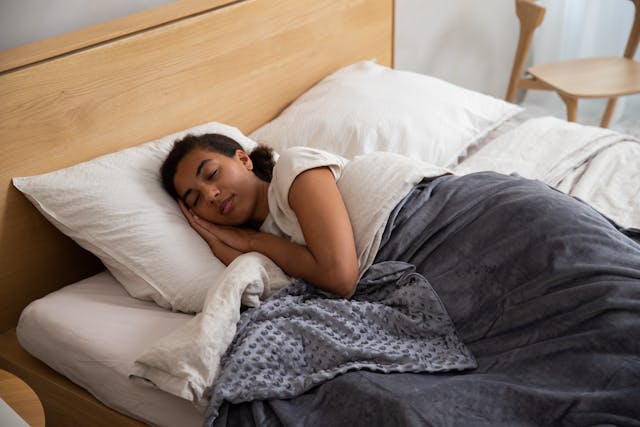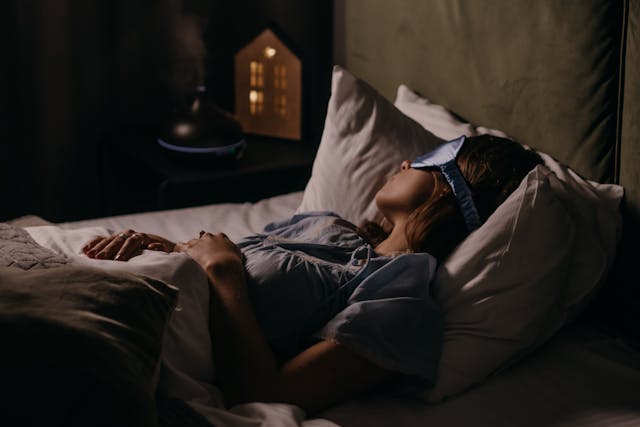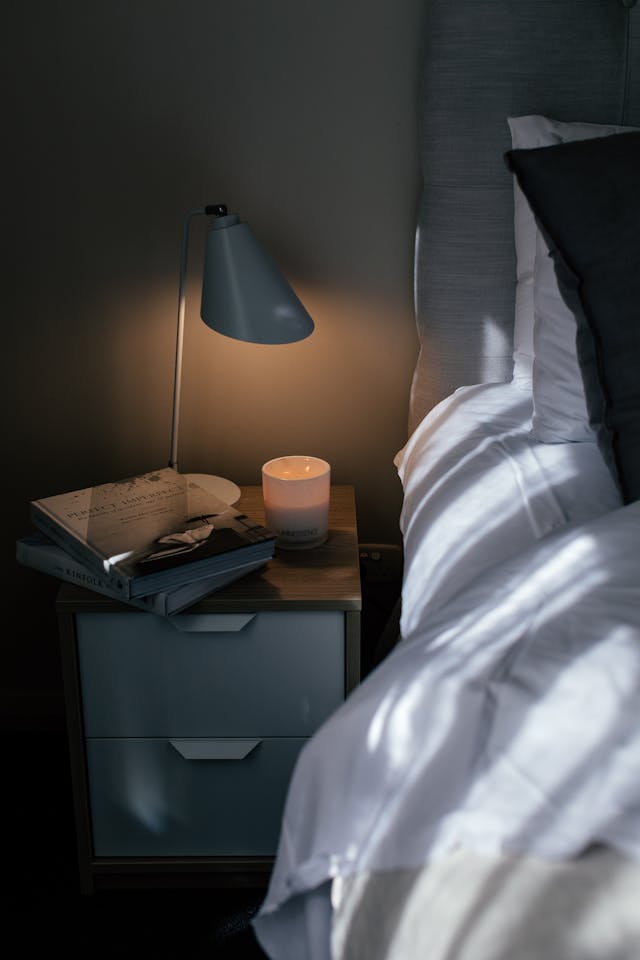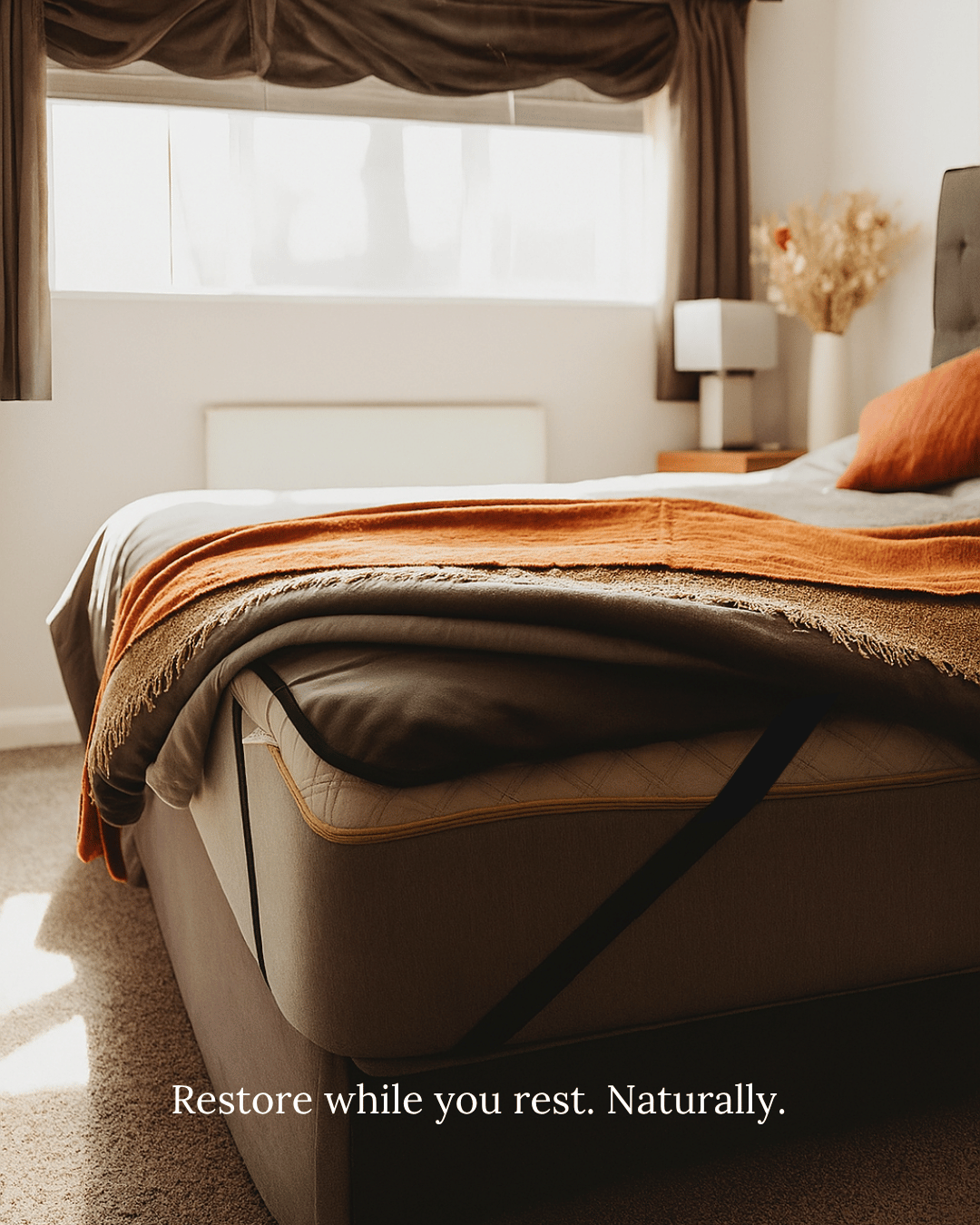A Guest Blanket Basket That Works
On Sundays, Maya calls her sister while folding laundry. They laugh about the week, and somehow the small ritual makes sleep come easier.
What’s really going on (in plain English)
Sleep in our 50s and 60s shifts: a little lighter, a touch earlier, more sensitive to late caffeine and bright screens. None of that is failure—it’s information.
If you track, compare weeks—not nights. If you don’t track, a three‑line paper log is often more peaceful.
Hydration earlier in the day beats big glasses of water at bedtime. Timing is a wellness tool.
A short science aside
Deep sleep naturally declines with age. That’s expected; the goal isn’t perfect graphs—it’s better days and steadier nights.
Coffee‑shop conversation
Imagine we’re across a small table, mugs warm in our hands. You share the week’s sleep, I nod at the parts that feel familiar.
We don’t chase perfection. We notice patterns: the lamp that helps, the snack that doesn’t, the way a phone call settled your mind.
From the community
The best thing I did wasn’t a gadget. It was going outside for five minutes in the morning.
—Luis, 61
Myth & reality
-
Myth: Only high‑tech solutions count.
Reality: Simple habits—light, timing, comfort—often deliver the longest‑lasting gains. -
Myth: Older adults can’t improve sleep.
Reality: Not true. Many do, especially when the focus is on consistency and environment.
Reader mailbag
-
Q: Are screens always the enemy?
A: They’re tools. If you enjoy an e‑reader, lower the brightness and keep the room lighting cozy. -
Q: What about late dinners?
A: Sometimes life demands them. When it does, keep the meal lighter and take a short, pleasant walk.
This week’s small win
One reader dimmed the living‑room lamp twenty minutes earlier than usual. Another took a short post‑dinner stroll.
No timers, no tracking—just a kind nudge. Their notes the next morning sounded lighter.
Where a grounding mattress cover might fit
If you like a set‑and‑forget approach, some readers prefer a simple, wipe‑clean surface under the fitted sheet—steady contact without adding laundry.
When you’re curious, you can read the care notes here: Earthbound Grounding Mattress Pad.
Questions to take on a walk
- What felt kind to your body today?
- Which small habit do you actually like enough to keep?
- Who could you call this week just to trade stories?
What readers keep asking
People ask about gentle sleep habits, calm evening routines, morning light benefits, and grounding mattress pads—especially for older adults who prefer sleep tracking without gadgets and softer lighting for aging eyes.
A note about data
Numbers can help, but only if they lower stress. Many readers switch to a three‑line paper log and feel immediate relief.
If you love your wearable, compare weekly averages and ignore nightly noise.
When sleep is stubborn
Kindness beats force. If you’re awake and restless, choose a quiet corner, a lamp, and three calm pages. Then return to bed.
Frequently asked questions
- Is this medical advice?
- No. It’s educational and supportive. Please talk with a clinician about personal concerns.
- Do I need to overhaul everything?
- Please don’t. Pick one small change you like, and keep it for a couple of weeks.
- Where can I learn about low‑maintenance contact?
- Here’s a starting point: Earthbound Grounding Mattress Pad.
















